child play therapy in richardson and dallas, texas
Play Therapy + EMDR for children in Richardson, TX
empowering your child to express, heal, and grow through child-centered, non-directive play
“Anything that’s human is mentionable, and anything that is mentionable can be more manageable. When we can talk about our feelings, they become less overwhelming, less upsetting, and less scary. The people we trust with that important talk can help us know that we are not alone.”
—Fred Rogers
Does my child need therapy?
signs of child anxiety
difficulty focusing at school and/or home
sleep issues or fear of sleeping alone
changes in eating
physical changes like stomach aches or headaches
crying often, more than usual
frequently worries (could be many things or one specific situation or worry)
quickly getting angry or irritable, and being out of control during outbursts
changes in using the bathroom
displays difficulty being away from caregivers or fear of being alone
signs of trauma in children
experienced a distressing event such as the death of a loved one, separation by divorce or incarceration, physical or sexual abuse, car wreck, or bullying
difficulty focusing at school and/or home
sleep issues or frequent nightmares
changes in eating
physical changes like stomach aches or headaches
crying often, more than usual
frequently worries or appears fidgety
seems to “zone out” or “space out”
sudden changes in mood or personality
quickly getting angry or irritable, and being out of control during outbursts
changes in using the bathroom
displays difficulty being away from caregivers or fear of being alone
avoiding school or social situations
emdr + play therapy for children (ages 5-10) in richardson
benefits of play therapy
Provides age-appropriate environment for children to express their emotions through play
Enhances self-responsibility and self-control
Improves self-regulation, self-esteem, emotional intelligence, and social skills
Allows for children to be understood in a safe setting
Trauma and anxiety therapy for children in Dallas, Texas
You may feel at a loss for how to help your child with overwhelming behaviors or emotions when nothing seems to work. Maybe you know your child experienced something scary or painful, or perhaps you have no idea where these troubling behaviors came from. You may feel guilt or fear that generational trauma patterns will negatively affect your child. You just want your kid to be okay, healthy, and confident in school and relationships without being hindered by the struggles they’ve had. Your child deserves to be seen AND heard while you gain support for the HARD and BRAVE work of parenting a whole human.
I provide play therapy and EMDR for children in Richardson, TX, serving families across Dallas and surrounding communities. I take a collaborative approach with an initial consultation with parent(s) or caregiver(s) without child present first. We will explore the child’s history and current concerns to create a plan for reaching goals. As a parent, you will be involved in the process with periodic check-ins to discuss your child’s needs and progress. You will be given parenting support, recommendations, and learn ways to help your child based on what is being worked on in therapy sessions.
My Approach
I utilize Eye-Movement Desensitization and Reprocessing (EMDR) in a play room setting filled with toys and creative art supplies. EMDR is a research-backed approach to treating trauma, anxiety, depression, and many other mental health concerns. Kids love the bilateral stimulation used in EMDR with “buzzies” (vibrating handheld device) or “butterfly hugs” (self tapping) to process experiences and build new connections in their brain toward healing. Through EMDR and play therapy, your child will learn to identify emotions in their body, uncover negative beliefs, and learn to calm overwhelming emotions with coping skills.
Background
I have experience in working with childhood trauma, sexual abuse, specific phobias (i.e. fear of vomit, insects, etc.), loss of a parent, generalized anxiety, and depression. My work history with children ranges from abuse survivors in a child advocacy center, vulnerable child populations in a child protection agency, and daycare provider for infants and toddler while in undergraduate work.
Reach out today to book a free consultation!
benefits of emdr for children
Harnesses the backdrop of the relationship built through child-centered play, giving children safety for EMDR processing to resolve traumatic experiences
Reduces anxiety, depression, and trauma-related symptoms for lasting change
Facilitates resolution of root issues of anger, behavioral issues, anxiety, and phobias
Incorporates evidenced-based approach for treating emotional dysregulation, trauma, anxiety, and depressionrather than play therapy alone
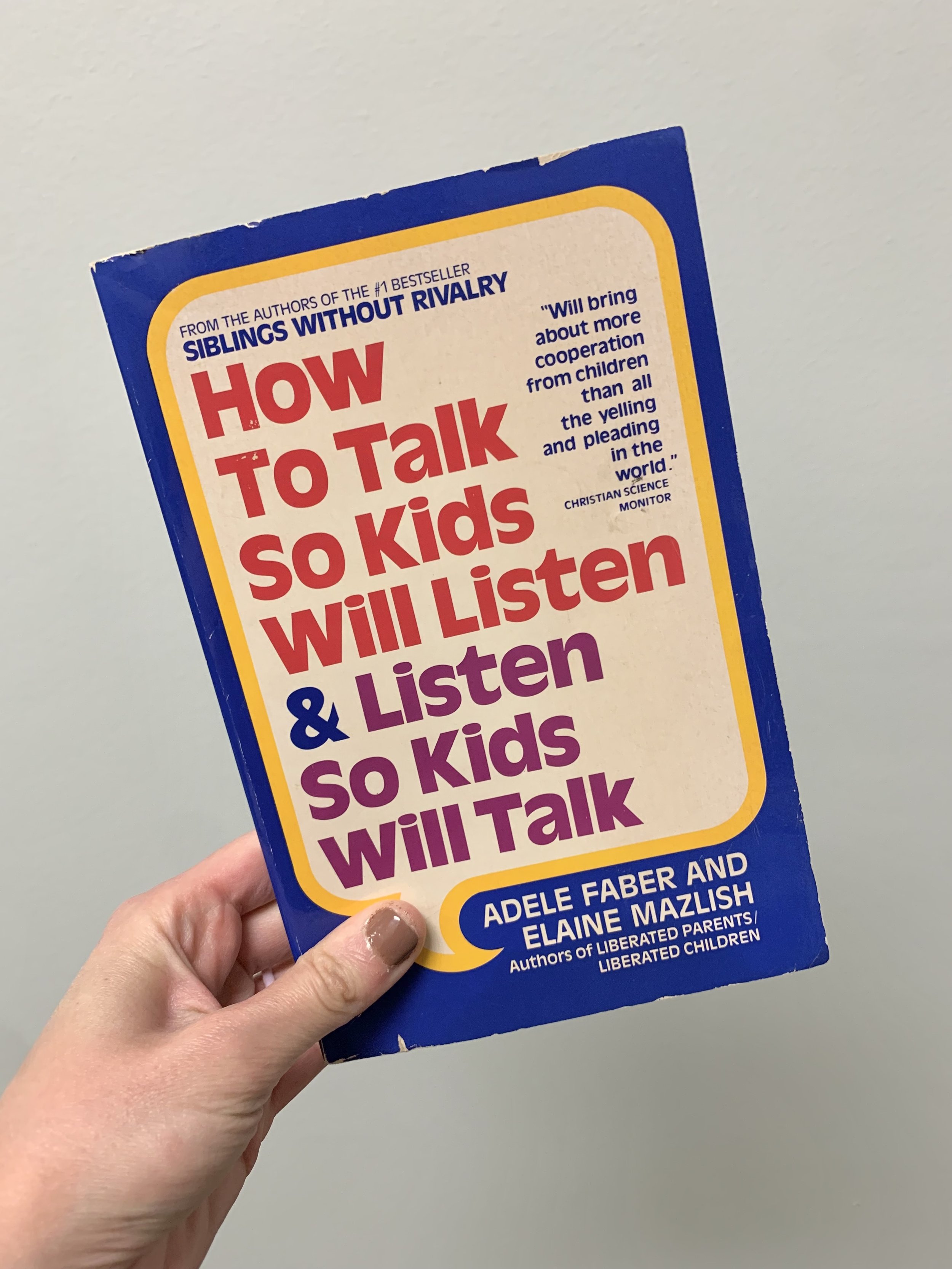

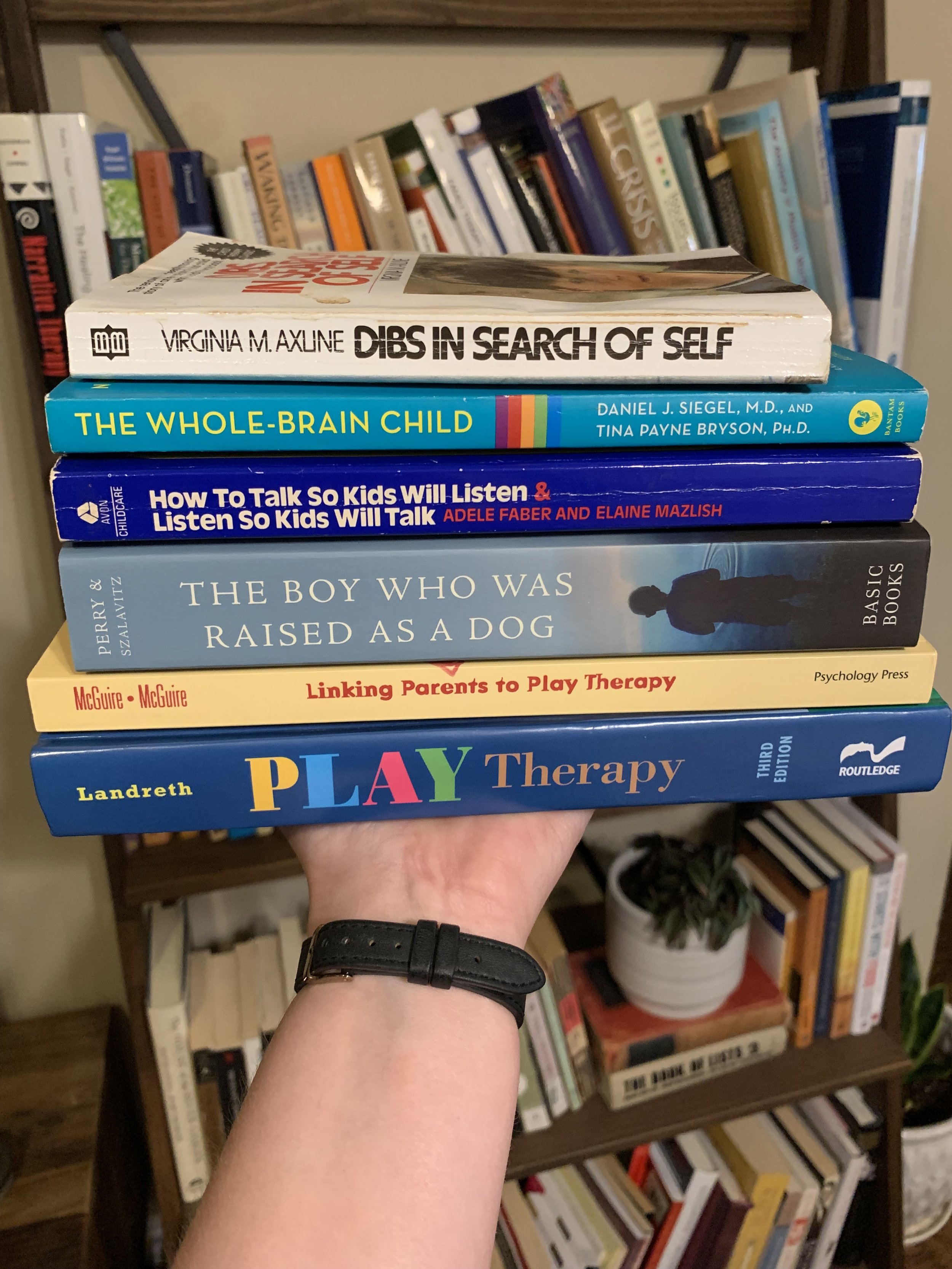
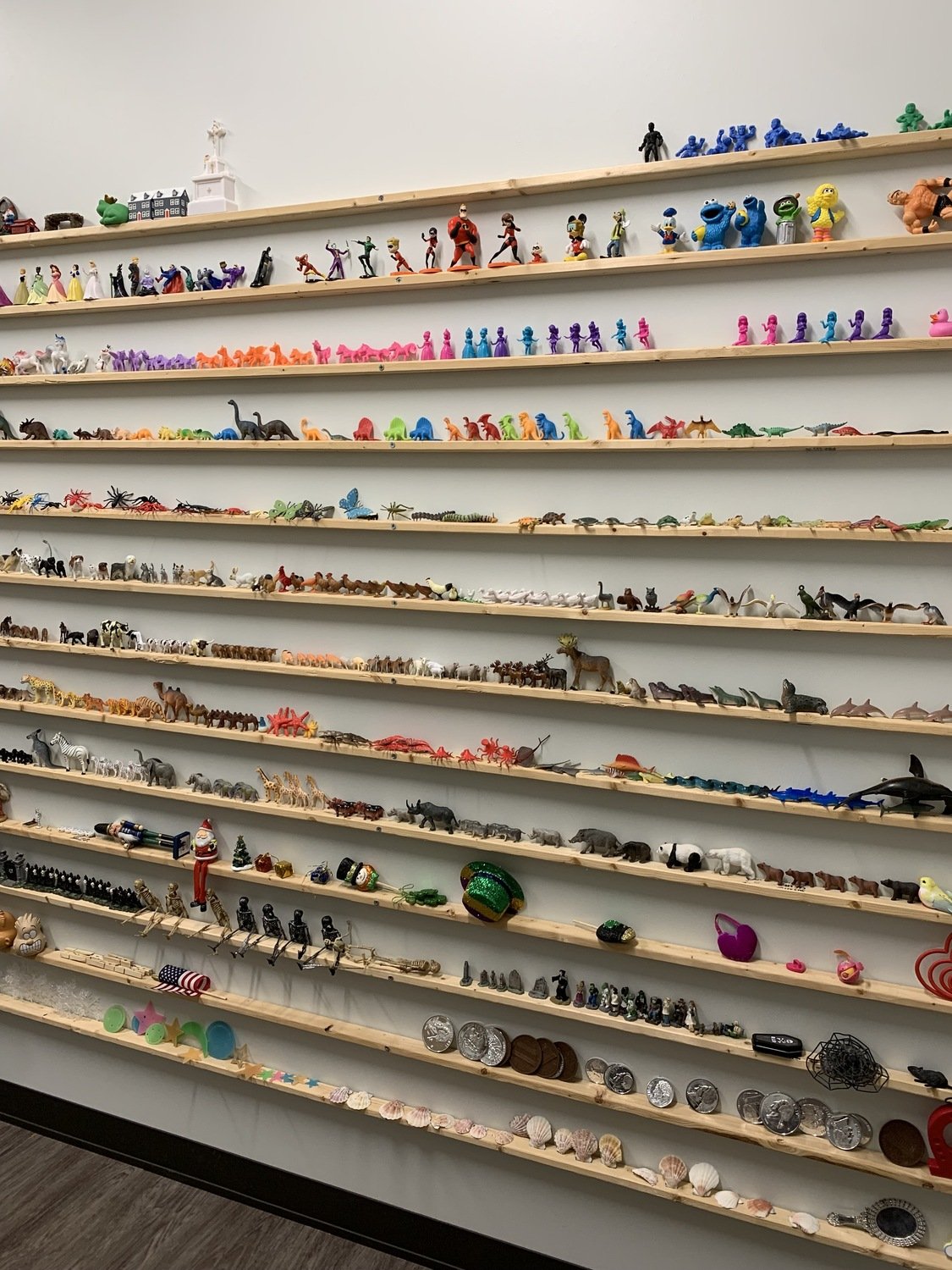
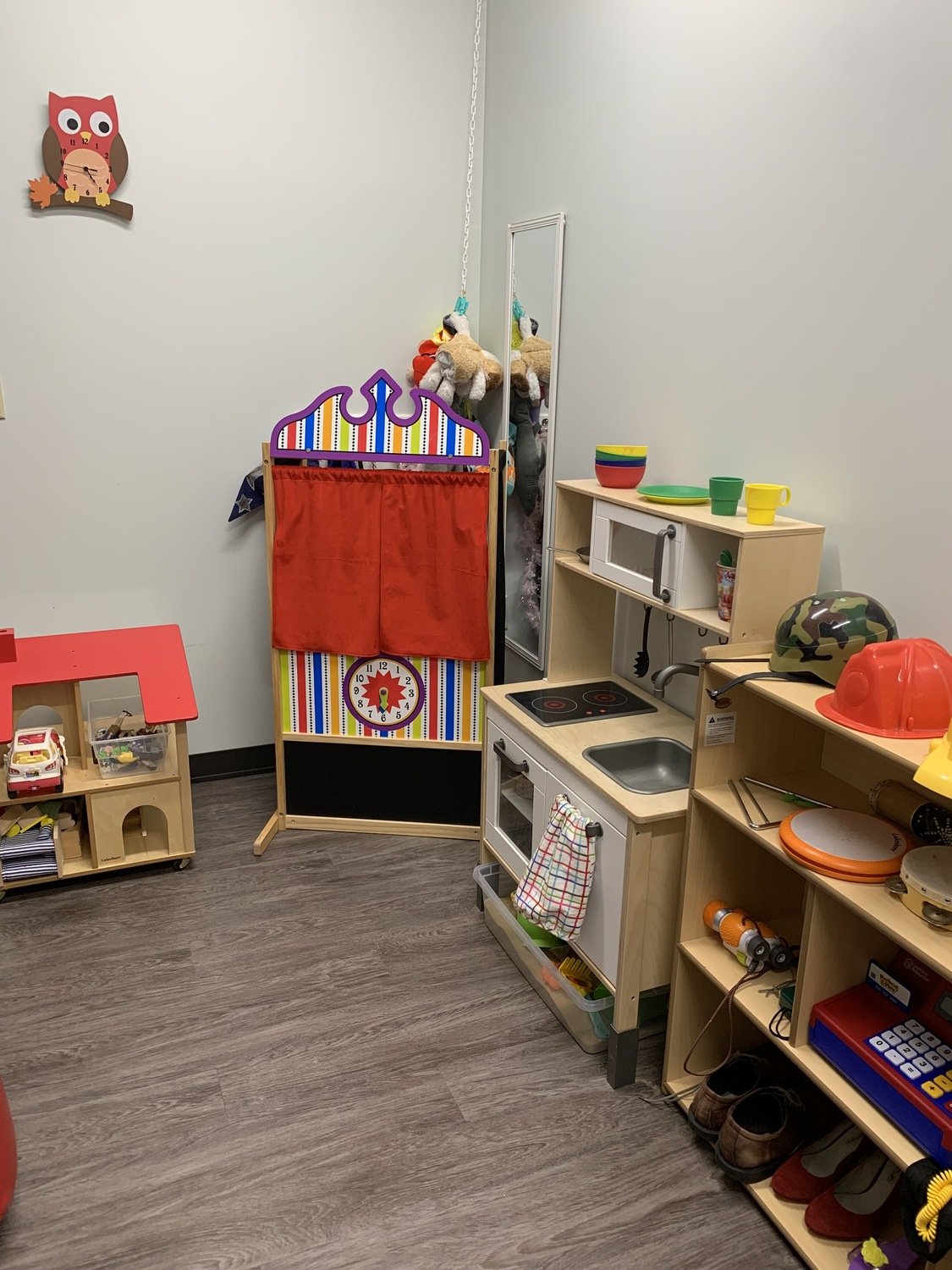


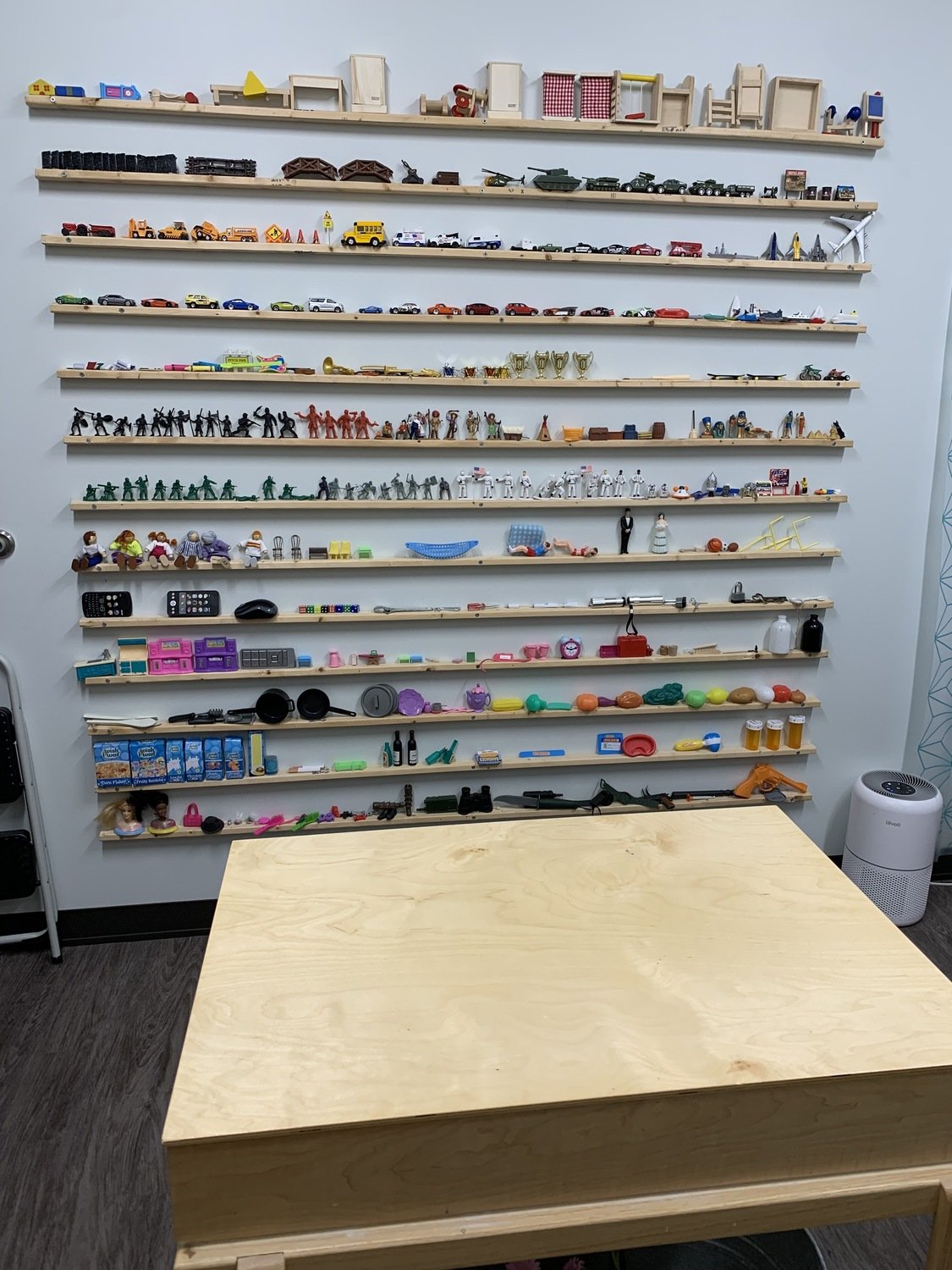
FAQs
What is play therapy and how does it work?
Play therapy is a form of counseling that uses toys, games, art, and creative activities to help children express feelings they may not have words for. Through play, kids can safely process emotions like anxiety, grief, or trauma. In my Richardson, TX office, play therapy gives children tools to manage big feelings, improve behavior, and build healthy coping skills.
is emdr for children be effective for children with trauma?
Yes, EMDR (Eye Movement Desensitization and Reprocessing) can be highly effective for children who have experienced trauma, anxiety, or overwhelming memories. In child-friendly EMDR sessions, we often combine movement, play, and creative tools to make the process safe and age-appropriate. Many families find that EMDR helps children feel calmer, less fearful, and more resilient after difficult experiences.
How long will play therapy take for my child?
The length of play therapy depends on your child’s unique needs and goals. Some children may benefit from just a few months of sessions, while others—especially those working through trauma, grief, or big life changes—may need longer-term support. Because I use child-centered, non-directive play therapy, the process moves at your child’s pace. In general, many families notice positive changes within the first few months, but lasting growth often happens gradually over time. We’ll check in together regularly for parent consultations to make sure therapy is supporting your child in the best way possible.
What will sessions with my child be like?
In my practice, I use child-centered, non-directive play therapy as well as incorporating EMDR (Eye Movement Desensitization and Reprocessing) where appropriate. Play therapy is a time for children to freely express themselves through toys, art, or imagination—without pressure to talk or share before they’re ready. This approach allows kids to process feelings at their own pace, while I provide a safe, supportive presence to guide healing. Parents often notice that over time, children feel calmer, more confident, and better able to manage their emotions.
How do I know if my child needs play therapy?
You may want to consider play therapy if your child is showing signs of anxiety, frequent anger outbursts, withdrawal, trouble at school, grief after a loss, or difficulty adjusting to changes like divorce. Parents often seek play therapy when their child has “big feelings” that are hard to manage at home. A consultation can help determine whether play therapy or another approach, such as EMDR for children, would best support your child.
what will my role be as a parent while my child is in therapy?
Parents are an important part of the play therapy process. While the sessions themselves are a space for your child to express and heal through play, I meet with parents every 3–8 sessions for consultations. During these meetings, we talk about your child’s progress, any concerns or challenges you’re noticing at home or school, and I share insights from what is happening in the playroom. You’ll receive guidance and recommendations that can support your child’s growth outside of therapy. This teamwork helps ensure that the benefits of play therapy carry over into everyday life.
my office
Located within EMPOWERED Counseling, LLC
1755 N Collins Blvd, Suite 310
Richardson, Texas 75080
Hours
By appointment only
Accessibility
The office is ADA compliant and accessible with mobility aids.


